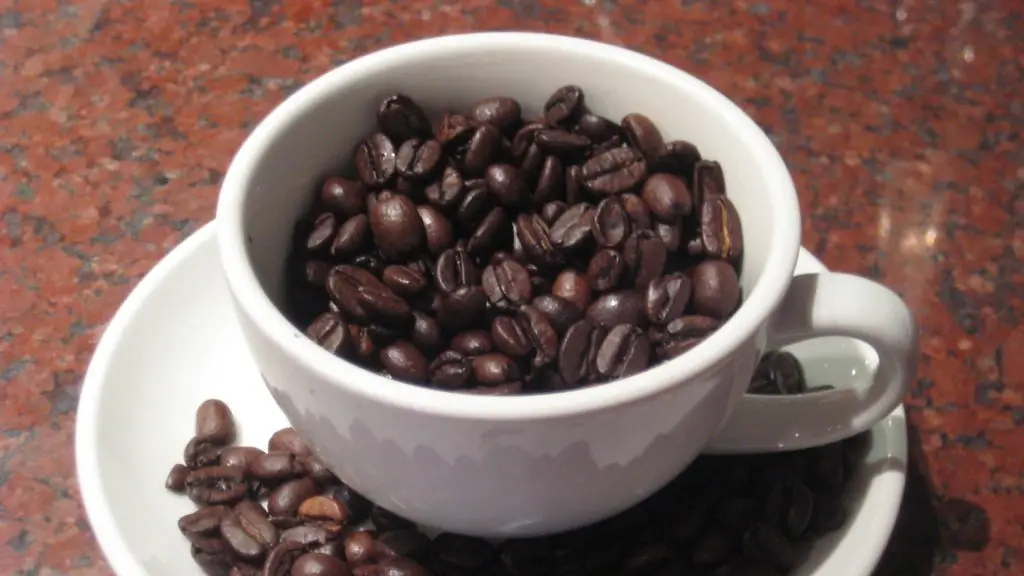Brewed coffee is one of the most popular drinks in the world, with people drinking it morning, noon, and night. Everything from espresso to cold brew comes from coffee beans and is usually consumed while they’re still fresh. But can you get sick from drinking expired coffee?
The answer isn’t as simple as yes or no. There are different types of risk associated with consuming expired coffee beyond the obvious declines in flavor. For starters, expired coffee is more prone to bacterial growth and mold and can even include dangerous mycotoxins that can be hazardous if consumed.
The primary concern with expired coffee, regardless of the brew, is becoming contaminated with mold, bacteria, parasites, and viruses due to lack of storage or poor hygiene when handling the product. Tufts Nutrition scientist Dr. Beatrice Golomb explains that consuming expired coffee doesn’t necessarily mean you’re ingesting something unsafe. But you may be more at risk of food poisoning and other issues. “It depends on the type of bacteria, the kind of organism, there’s a lot of variability,” she says.
For a safe option, it’s best to stick to beans that have been stored properly, such as in an airtight container, and have been roasted within the last month or so. Whole beans are said to last up to three or four months after roasting, whereas ground coffee beans will only last about a month. If it’s been more than that, you may want to start exploring new options.
Expired coffee carries with it the associated risks of contamination, but the biggest risk is always flavor. “Expired coffee tends to lose its flavor,” says John-Alexander Boyer, a barista in Portland Oregon. “The flavor of coffee can fade as it gets older, so drinking that coffee could lead to an unpleasant surprise.”
In terms of health risks, though, the consensus is that providing the coffee was stored properly, there’s little reason to worry. Dr. Golomb explains, “Usually coffee is well preserved. It has coffee oil and coffee bean isn’t a high risk food in general,” she says. “So you’d have to have a substantial spoilage or bacterial growth to put yourself at risk.”
The good news is that as long as you store and handle your coffee appropriately, you shouldn’t have to worry about getting sick from drinking expired coffee. And if you’re brewing at home, you shouldn’t have to worry about the freshness of the beans in the first place.
Dangers of Mold
Mold is a major concern when it comes to drinking expired coffee. Mold can form on coffee beans and when left undetected, it can be hazardous to your health. Consuming expired coffee can cause a variety of symptoms, including allergic reactions, nausea, and vomiting. Mold spores in coffee can also interfere with the body’s ability to absorb essential nutrients.
Since mold spores can live in coffee beans, it’s important to pay attention to the freshness of your beans. If you can smell or taste a “musty” flavor, the coffee is most likely contaminated with mold and shouldn’t be consumed. Additionally, coffee beans should be stored in a cool, dark, and dry place and in an airtight container.
In addition to mold, other contaminants, such as bacteria, parasites, and viruses, can also be present in expired coffee. In order to avoid getting sick, it’s important to purchase freshly roasted coffee from a reliable source. If you’re unsure of the freshness of your coffee, it’s best to discard the beans and purchase a new batch.
Lastly, if you do encounter moldy coffee, never drink it! This can lead to serious health concerns.
Effects of Sitting on the Counter
The longer coffee beans sit on the counter, the greater the chance of absorption of contaminants. Coffee beans, like any food item, can become a breeding ground for bacteria and mold. As such, it’s important to know how long you’ve had the beans and how they were stored.
When kept in an airtight container, away from light and heat, coffee beans can last a few months. Ground coffee will last considerably less than whole beans so it’s important to pay attention to expiration dates. Additionally, make sure to check for discoloration, waxy or slimy deposits, or a musty odor, as these are all signs of spoilage.
If you’re using pre-ground coffee, it’s important to use it within a few days of opening. Pre-ground coffee is much more prone to bacterial growth and spoilage due to the fact that it’s exposed to air. Additionally, if you’re storing coffee grounds, it’s important to store them in an airtight container and keep them in the refrigerator.
Even though the total time exposed to air is shortened, it’s still important to check the beans for signs of spoilage and mold. You can also opt for freshly ground or whole bean coffee which, if properly stored and handled, can last a few months.
Reheating Coffee
Reheating coffee can negatively affect its flavor and freshness. When coffee is reheated, the water content and aromatic compounds can evaporate quickly, resulting in a weaker and less flavorful cup of coffee. Additionally, reheating coffee can also affect its safety. If the coffee is left at room temperature for too long, it could become contaminated by bacteria or mold, resulting in food poisoning or other illnesses.
If you’re reheating coffee, it’s best to do so in a microwave-safe mug or container, as microwaving coffee retains more of its flavor and aroma. Microwaving coffee is also the fastest method of reheating coffee, as it only takes a few seconds.
If you’re looking to amplify coffee’s flavor and aroma, adding a small amount of cream or sugar can do the trick. However, adding too much can cause the coffee to lose its flavor quickly. Additionally, adding too little sugar or cream could result in a bitter or overly acidic cup of coffee.
Brewing Coffee
Brewing coffee is arguably one of the most important factors in ensuring safety and freshness. If you’re brewing coffee from whole beans, it’s important to buy freshly roasted beans from a trusted source. Additionally, it’s important to make sure the beans are properly stored and not expired.
As far as the brewing process, it’s important to pay attention to the amount of coffee and water you’re using. The most crucial step is making sure your coffee is brewed at the right temperature. To do this, it’s important to use an accurate thermometer and to pay attention to the time. If you brew for too long, your coffee may be over-extracted and bitter. On the other hand, an under-extracted cup will be watery and weak.
When the brewing process is finished, it’s important to store the brewed coffee in an airtight container. If you’re not going to consume the entire pot, make sure to portion it out into smaller containers and store them in the refrigerator. Doing this will ensure the coffee stays fresh and flavorful for as long as possible.
Storing Coffee
One of the most important steps in ensuring the safety and freshness of coffee is proper storage. All coffee beans, regardless of type, should be stored in an airtight container away from heat, light, and moisture. When storing beans at room temperature, it’s important to use an opaque canister or jar. This will keep the beans from absorbing too much light which can affect their taste and freshness. Additionally, the canister should be airtight to keep out moisture and air.
If you’re storing ground coffee, it’s important to tightly seal the bag or container and store in the refrigerator. This will ensure that the coffee remains as fresh as possible. Additionally, it’s important to not grind your beans ahead of time and only grind them when you’re ready to use them.
Finally, it’s important to keep an eye on the expiration date on your beans. Pay attention to the date on the bag and, if you’re unsure, it’s best to err on the side of caution and choose fresher beans.





